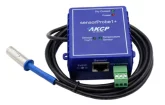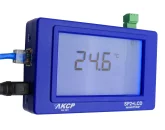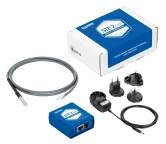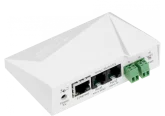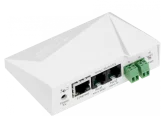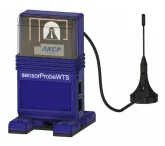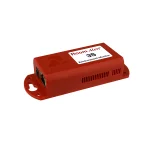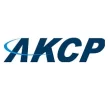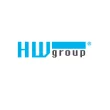Environmental Monitoring (EM) is the systematic collection of data to assess the cleanliness and control of manufacturing environments, especially in sterile or aseptic processing areas. It includes the monitoring of viable (microbiological) and non-viable (particulate) contaminants in air, surfaces, and personnel. EM helps ensure compliance with regulatory standards and protects product quality and patient safety.
Pharmaceutical Environmental Monitoring
Environmental monitoring is an essential aspect of pharmaceutical manufacturing, where maintaining precise conditions is crucial to ensuring the safety, efficacy, and quality of pharmaceutical products. Pharmaceutical manufacturing facilities are required to adhere to strict regulatory standards to maintain the highest levels of quality control and safety. Deviations in environmental conditions, such as temperature, humidity, air quality, or particulate levels, can jeopardize product integrity, compromise safety, and result in costly non-compliance penalties. This makes real-time environmental monitoring indispensable. At Server Room Environments we supply and install state-of-the-art environmental monitoring solutions that help pharmaceutical manufacturers meet these rigorous standards.
-
Applications (40)
- Temperature & Humidity (30)
- Water Leakage Detection (26)
- Server Rack Monitoring (28)
- Hardwired Ethernet Devices (28)
- Wi-Fi Connectivity Units (8)
- Wireless Devices (13)
- Narrowband IoT Devices (4)
- GSM / LTE Comms (7)
- Battery Monitoring (7)
- Power Monitors (28)
- Security Monitors (26)
- Branch Circuits (2)
- Data Centres (7)
- Data Loggers (11)
- Data Aquisition Systems (11)
- Laboratories (18)
- Pharmaceutical (18)
- Accessories (159)
The Importance of Environmental Monitoring in Pharmaceutical Manufacturing
In pharmaceutical manufacturing, products such as medicines, biologics, vaccines, and medical devices are developed and produced in environments that must be controlled to meet rigorous standards. Several environmental factors directly influence the quality of the final product, making environmental monitoring a critical part of the manufacturing process. These factors include:
- Temperature: many pharmaceutical products, especially biologics, vaccines, and certain chemicals, are temperature-sensitive. Maintaining the appropriate temperature ensures that the active ingredients in pharmaceutical products remain stable and effective throughout the production and storage processes.
- Humidity: humidity plays a critical role in the stability and preservation of both raw materials and finished products. Excessive moisture can cause chemical degradation, while low humidity levels can lead to static electricity buildup, which could affect equipment and materials.
- Air Quality: contaminants such as airborne particles, volatile organic compounds (VOCs), or chemical fumes must be carefully controlled. Poor air quality could lead to contamination of products, as well as pose health risks to workers.
- Particulate Matter: pharmaceutical manufacturing often takes place in controlled environments, such as cleanrooms, where even the smallest particles can have a detrimental impact on product quality. Monitoring particulate levels ensures that cleanroom environments meet the stringent standards set by regulatory bodies.
- Pressure: differential pressure is also an important factor, particularly in cleanrooms. Proper air pressure differentials help maintain contamination control, ensuring that clean areas remain free from airborne contaminants from dirtier zones.
Regulatory Requirements in Pharmaceutical Manufacturing
The pharmaceutical industry is highly regulated to ensure that products are safe, effective, and manufactured in environments that comply with established standards. Regulatory bodies such as the U.S. Food and Drug Administration (FDA), European Medicines Agency (EMA), and the World Health Organization (WHO) impose strict guidelines on manufacturing facilities. For example:
- Good Manufacturing Practice (GMP): GMP guidelines outline requirements for the production and testing of pharmaceutical products to ensure they are consistently produced and controlled according to quality standards. Environmental control is a key element of GMP, particularly with regard to temperature, humidity, and cleanliness.
- 21 CFR Part 11 (FDA): this regulation requires electronic records and signatures to be maintained for compliance in pharmaceutical manufacturing, including environmental data monitoring. Continuous monitoring and automated data logging support compliance with this regulation.
- ISO 14644-1: this international standard outlines the classification of air cleanliness in cleanrooms and controlled environments, specifying allowable limits for airborne particulate matter.
Failure to meet these regulatory requirements can result in the recall of products, suspension of production, and even legal action. Therefore, pharmaceutical manufacturers rely on accurate, real-time environmental monitoring to ensure compliance and maintain the highest standards of product quality and safety.
Benefits of Environmental Monitoring in Pharmaceutical Manufacturing
- Regulatory Compliance: one of the primary benefits of using environmental monitoring systems in pharmaceutical manufacturing is the ability to comply with industry regulations. Our devices help ensure that temperature, humidity, air quality, particulate levels, and other environmental parameters stay within the required limits, minimizing the risk of regulatory violations.
- Real-time Monitoring and Alerts: our systems provide real-time monitoring of critical environmental parameters, ensuring immediate detection of any deviations. With custom alerting systems, pharmaceutical manufacturers can take quick corrective actions to maintain optimal conditions and prevent product degradation or contamination.
- Cost Savings: by preventing environmental fluctuations and equipment failures, our systems help minimise downtime, product loss, and the need for expensive repairs or replacements. The early detection of issues also allows for proactive maintenance, further reducing the cost of operations.
- Improved Product Quality and Safety: continuous monitoring ensures that pharmaceutical products are manufactured under optimal conditions, safeguarding product quality and safety. By adhering to environmental requirements, manufacturers can ensure the effectiveness of their products, reducing the risk of recalls or safety issues.
- Comprehensive Reporting and Data Logging: our systems provide automated data logging and reporting features that make it easy to generate compliance-ready reports for audits. These reports help maintain a complete history of environmental conditions, which is essential for both internal quality assurance and regulatory inspections.
Environmental monitoring is an indispensable component of pharmaceutical manufacturing, ensuring that production conditions remain optimal and compliant with strict regulatory standards. We provide a wide range of monitoring solutions, from temperature and humidity sensors to airflow and particulate sensors, which are crucial for maintaining product integrity and safety. By utilising our devices and software, pharmaceutical manufacturers can ensure real-time monitoring, regulatory compliance, and efficient operations, ultimately safeguarding the quality of their products and the safety of their customers.
Please contact our Projects Team for more information on the range of pharmaceutical environmental monitoring systems we supply along with our installation and calibration services.

Earn SRE points on all online purchases with double points on selected products



























